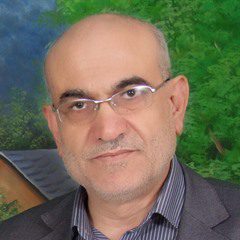Before clashes broke out in Syria, the head of the Hamas Movement’s Political Bureau, Khaled Meshaal, contacted the Syrian leadership and offered clear and frank advice regarding the need for political reform. He warned the regime that the wave of demand for reform sweeping the region would not stop at the Syrian borders, and that the Syrian people wished for freedom just like other Arab people.
The leadership did not listen to the advice, and insisted that “this system of resistance and opposition” is different than any other, and that the Syrian people would not rebel against the regime. However, the heroic Syrian people surprised not only the regime, but the entire world with their patriotism, persistence and sacrifices for freedom.
To realize the magnitude of challenge the Syrian people faced, one must realise the kind of regime and forms of security and sectarianism that exists in Syria which the Syrian people know well; they have many memories relating to it in the form of massacres and suffering.
And so their revolution was an expression of that heroism which comes in the face of a bloody security regime, based on almost complete support by the Alawite minority, as well as a similar support, though to a different degree, from other minorities living with some concerns and fears about the future. There is also a limited sector of the Sunni majority who feel that their earnings would be at risk in the event that the regime should fall.
A short time after the outbreak of the Revolution, the Syrian regime officially demanded that Hamas determine its position regarding what was going on. To this, Hamas responded clearly stating that its alliance with the regime was against the Zionist Occupation, and not against the Syrian people. The Movement then issued a neutral statement which the regime considered a betrayal.
Pressures continued to be placed on the Hamas Movement to release a statement or take up a position different from that taken in the neutral official statement already released. However, the Movement refused, and the Iranians intervened in an attempt to force their hand going as far as halting essential financial support needed to keep things going in the Gaza Strip. However, the movement withstood the pressure and maintained its position which, after news of it leaked, pushed Iran to resume some of the support.
Relations between the two governments are no longer the same; a situation that is not expected to change even in the event that Gaza’s Prime Minister, Ismail Haniyeh, visits Tehran – a visit that comes in response to an old Iranian invitation, perhaps in recognition of the support given by Iran to the Strip. This support is, unfortunately, more than most of the Arab support and will most likely stop or practically has stopped, and there must be compensation from the Arab and Turkish sides.
The Movement found itself in a difficult position after the outbreak of the Syrian Revolution, but found no other option than to take up the position it has for a variety of considerations; primarily the principle and moral dimensions which require that it side with people seeking freedom.
Under no circumstances does the Movement deny the support it has been given by the Syrian regime during many sensitive stages. What cannot also be forgotten is that it was the Syrian people who hosted the Movement and supported it in different ways expressing their love for Palestine and their partiality towards Islamic resistance through their support for Hamas. Similarly, they did not take a negative position on Hezbollah’s resistance on grounds of sectarian sensitivity, and we saw how they embraced Lebanese Shiite refugees during the war of July 2006, hosting them in their homes with generosity and magnanimity.
The views expressed in this article belong to the author and do not necessarily reflect the editorial policy of Middle East Monitor.








